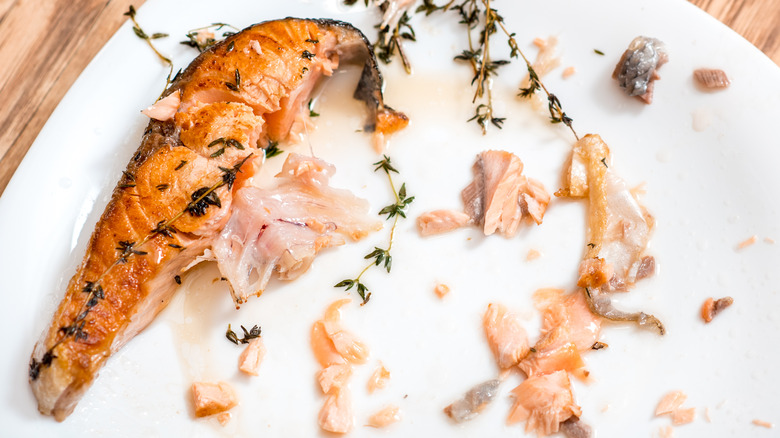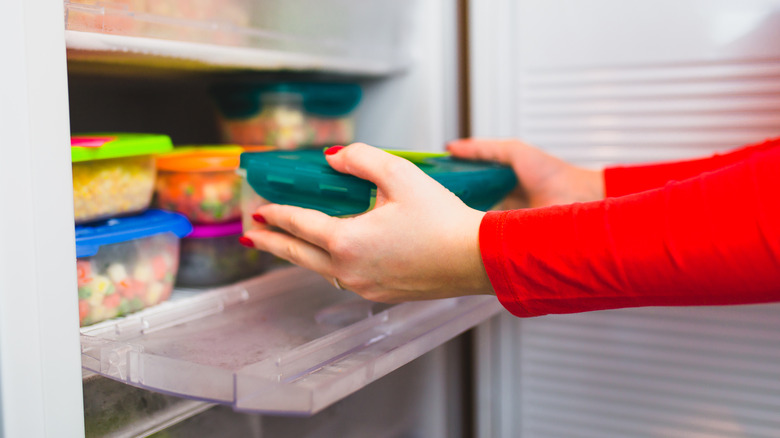How Long Does Cooked Fish Last As A Leftover?
There is a variety of health benefits to be gained from regularly eating fish, as it's high in protein, selenium, and vitamin D, while simultaneously low in saturated fat (via Harvard T.H. Chan School of Public Health). As per the American Heart Association (AHA), it's advised to consume 2 servings of fatty fish on a weekly basis (via Consumer Reports). Salmon, herring, mackerel, and albacore tuna are among the AHA's most recommended types of fish for eating due to their high omega-3 content. However, nearly 50% of Americans are reportedly only indulging in fish on occasion, if at all (via Harvard T.H. Chan School of Public Health).
A 2018 review published in Circulation found significant evidence derived from various studies that the omega-3s in fatty fish can lower one's risk for heart disease — even if only consumed once a week. Study findings determined that the risk for sudden cardiac death was cut in half for those who ate 1 fatty fish meal weekly (via Consumer Reports). Similarly, those who ate fish once a week were also 14% less likely to experience stroke stemming from blood clots in the brain.
Because fish has so many health benefits to offer, it's understandable to want to keep leftovers for as long as possible in order to try and reach the AHA's weekly dietary recommendation — but just how long is it safe to keep cooked fish in the fridge?
How to properly store leftover fish
According to the U.S. Department of Agriculture (USDA), leftover fish should not be kept in the refrigerator for more than 3-4 days. This is due to the fact that refrigeration does not stop bacterial growth altogether, but rather, slows it down. Therefore, eating leftover fish after 4 days spent in the fridge can potentially lead to foodborne illness.
While these guidelines pertain to fish that you yourself have prepped and cooked, what about leftovers taken home from a restaurant? According to AWG Private Chefs, cooked fish taken home from a restaurant should be eaten the following day. Because fish used in restaurants may have already been left out prior to serving, it's best to consume leftovers within 24 hours.
Additionally, you'll want to keep your refrigerator set between 35-38 degrees Fahrenheit (via AWG Private Chefs). It's a few degrees colder than the U.S. Food and Drug Administration's formal recommendation of 40 degrees Fahrenheit, yet doesn't dip below freezing. Keeping your fridge within this temperature range will help fish keep for longer, as refrigerators are often a few degrees off from the set temperature.
And of course, your nose never lies! If you detect a pungent, chemical scent coming off your leftovers, or if the fish develops a slimy coating, always err on the side of caution and toss it out to avoid possible illness.


